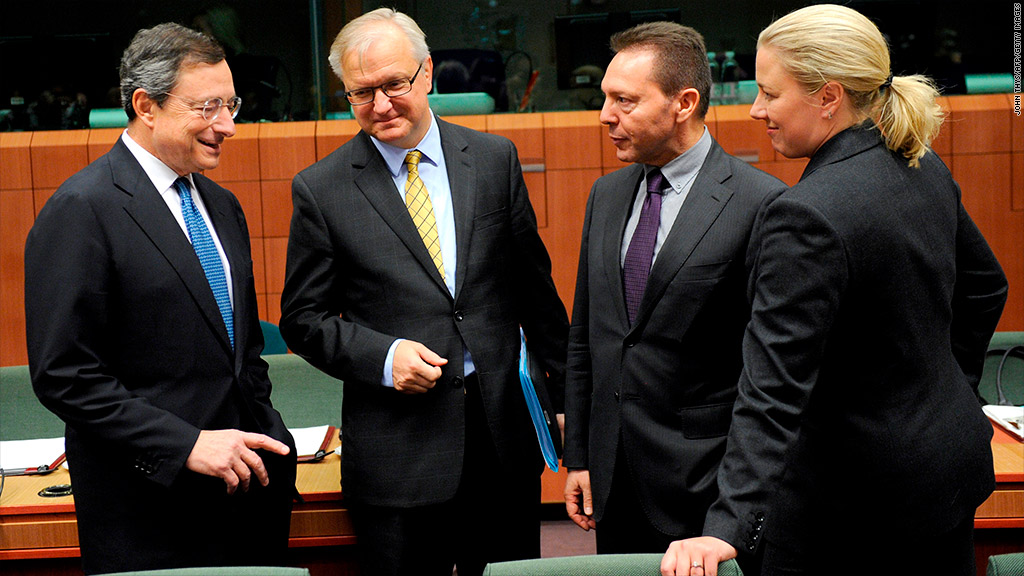
European finance ministers concluded a marathon meeting Wednesday without finalizing the details of a debt-reduction package for Greece.
The absence of an agreement endangers the release of the next round of Greece's international bailout package, funding the country needs to remove the threat of bankruptcy and a messy exit from the eurozone.
The source of the delay Wednesday was not immediately clear, but negotiations lasted nearly 12 hours. The group has agreed to meet again on Monday to continue talks.
Jean-Claude Juncker, the Eurogroup president, said in a statement that the discussion was "extensive" and that progress was made.
"The Eurogroup ... made progress in identifying a consistent package of credible initiatives aimed at making a further substantial contribution to the sustainability of Greek government debt," Juncker said.
Bailout payments to Greece were suspended in June after Athens fell behind schedule in cutting its budget deficit and implementing economic reforms. Greece will need additional funds of some 30 billion euros to tide it over until 2016.
German finance minister Wolfgang Schäuble, speaking with reporters after the meeting's conclusion, indicated the factions were closing in on a deal.
"We have a series of options lying on the table about how to close the financial gap ... but because the questions are so complicated we have not found a definitive solution," he said.
Related: Eurozone risks rising as outlook darkens
In Greece, Prime Minister Antonis Samaras has won parliamentary support for new spending cuts, tax rises and labor market reforms aimed at reining in debt -- seen soaring to 190% of GDP in 2013 -- and restoring growth to an economy about to enter its sixth year of recession.

The latest austerity drive has sparked violent protests in Greece, where unemployment now stands at 25% and where living standards for many have plunged as the economy has shrunk by a fifth.
Greece's resolve has calmed the nerves of the troika of international lenders - the EU, European Central Bank and International Monetary Fund -- and won Athens two more years to meet a budget deficit target contained in its second bailout program agreed earlier this year.
Eurozone finance ministers and the IMF also insist Greece must stick to a target of reducing its debt-to-GDP ratio to 120% by 2020 to restore market confidence.
Any agreement by the troika will be put to national parliaments this month with a view to releasing the funds on December 5.
Much of the planned bailout funds will be used to recapitalize Greek banks in a bid to revive lending to companies and households.


